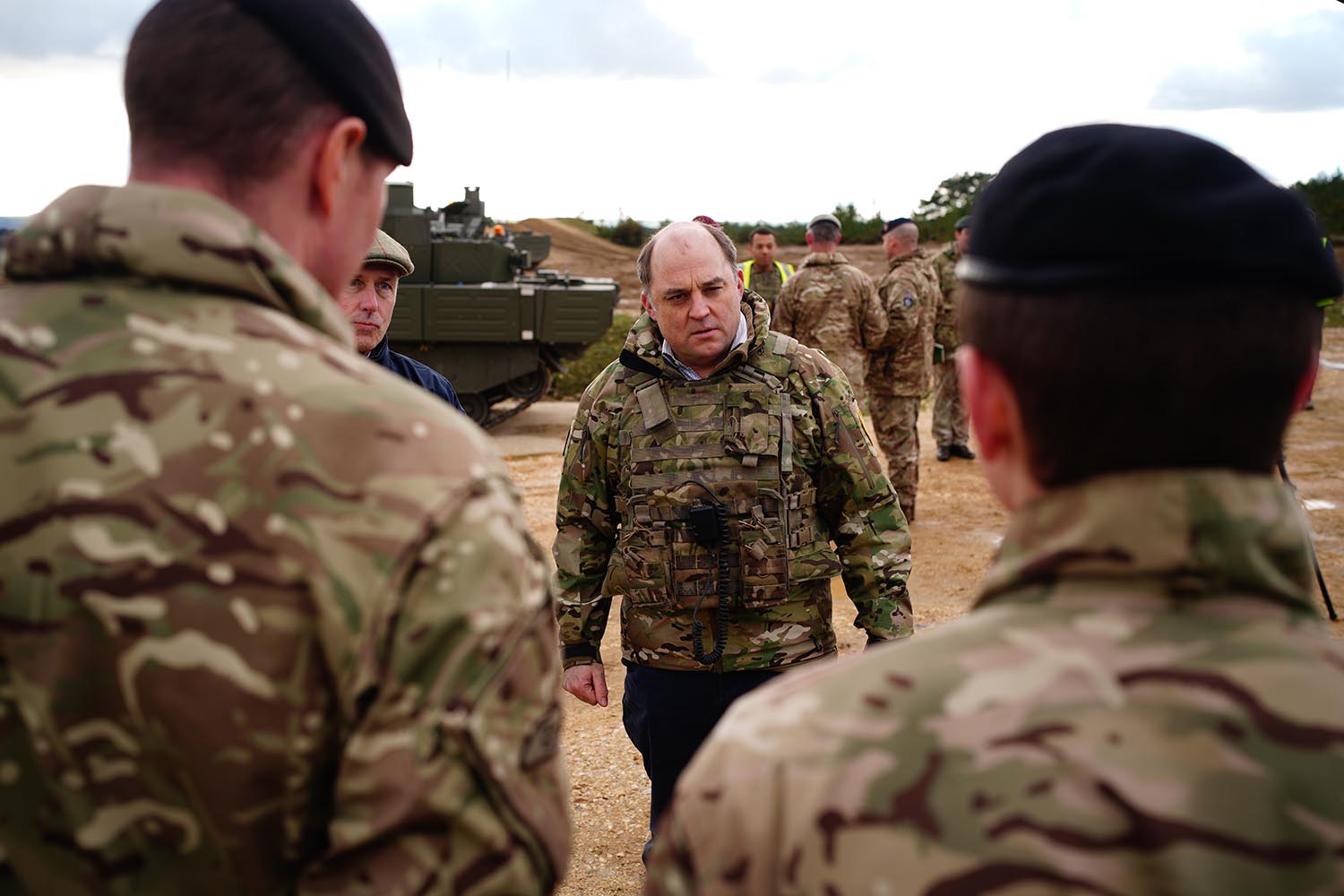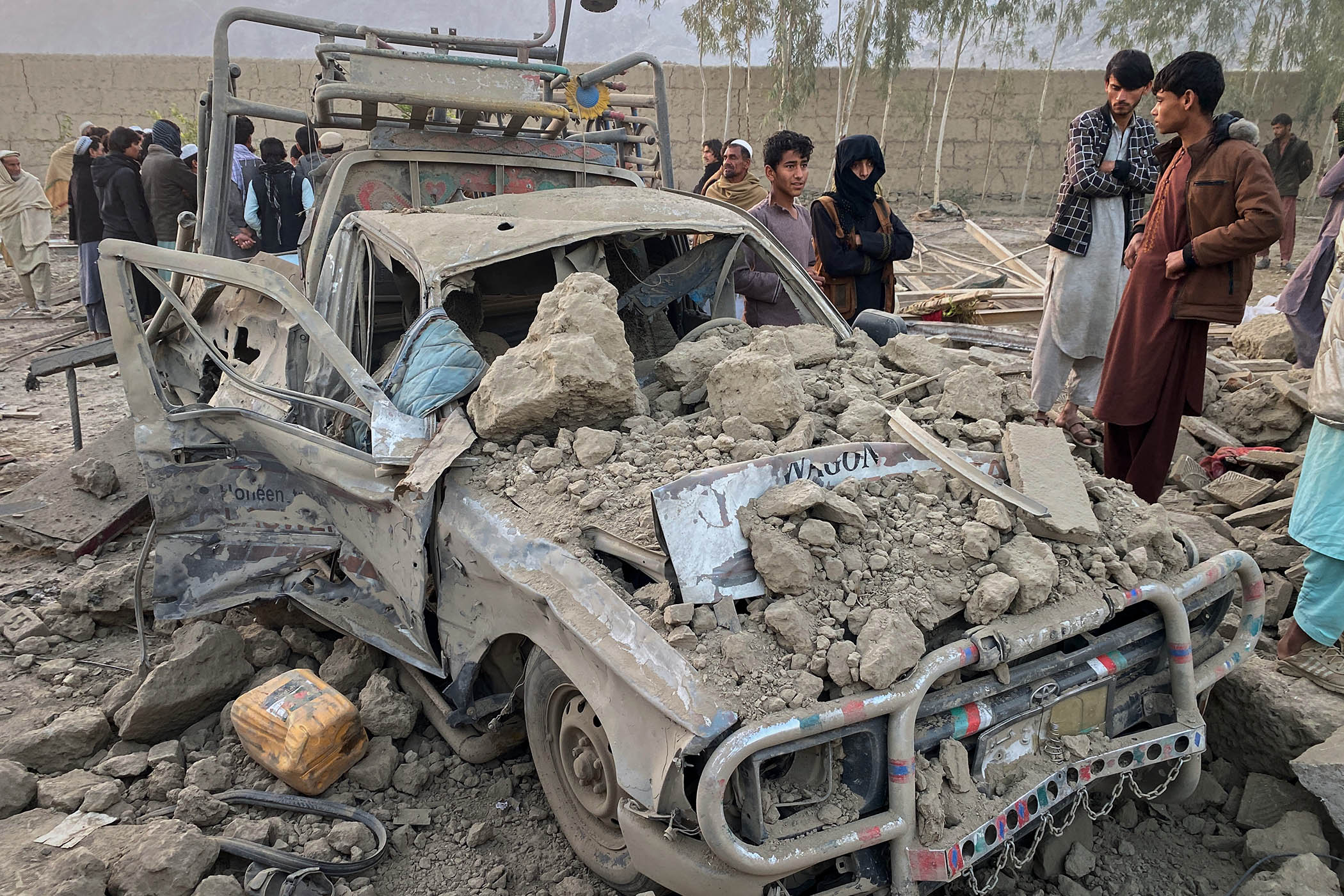
The special forces are coming under increasing pressure to submit to greater scrutiny and accountability than ever in their history, after the Afghan data leak.
While the leak was accidental, concerns have been raised about the decision to aggregate the data that was released, and the structural failings that resulted in potentially putting thousands of lives at risk.
The injunction – sought by the then defence secretary Ben Wallace to protect the thousands of individuals exposed by the leak, and upgraded to a superinjunction by a judge – was intentionally or otherwise also helpful to those implicated in the leak.
Sources involved at the time said to The Observer that the repeated extensions were sought because, as one person put it: “If you’re secretly taking thousands of people out of Afghanistan without alerting the Taliban, it’s a slow process.” But it also ensured nobody could be held to account; not ministers, not the special forces and not the first sea lord, Gen Sir Gwyn Jenkins.
Such was the veil of secrecy, the decision was taken not to brief parliament’s intelligence and security committee (ISC), which has a statutory duty to oversee and scrutinise intelligence matters and receives regular “closed door” briefings from spooks. No one contacted by The Observer was able to say why the ISC was cut out, although Wallace last week appeared to suggest it was because it fell outside its intelligence remit.
While that has been strongly rebutted by the ISC’s chair, Labour peer Kevan Jones, it is true that the special forces, uniquely within the British state, are not required to submit to any parliamentary scrutiny.
Mike Martin, the Liberal Democrat MP for Tunbridge Wells and a former army captain, believes the special forces are facing a “watershed” moment with the continuing inquiry into allegations that SAS soldiers shot unarmed men and children in Afghanistan.
Led by Lord Justice Haddon-Cave, the inquiry has already heard testimony from one senior officer that the team had a “golden pass to get away with murder”.
The conclusion may well be damning, but confined by its narrow terms of reference, the inquiry can only look at the period between 2010 and 2013.
“There is no way they can get out of this without root and branch reform of special forces, and that includes parliamentary oversight,” said Martin.
Newsletters
Choose the newsletters you want to receive
View more
For information about how The Observer protects your data, read our Privacy Policy
He is among those pushing for parliament to be able to scrutinise the special forces, granting either the ISC or the defence select committee, which he sits on, the power to call witnesses and conduct inquiries.
“There is no way they can get out of this without root and branch reform of special forces, and that includes parliamentary oversight”
“There is no way they can get out of this without root and branch reform of special forces, and that includes parliamentary oversight”
Mike Martin, MP for Tunbridge Wells
Not everyone believes parliamentary oversight will be sufficient to rein in the regiment, which has always operated with a tacit hands-off approach.
“This is a useful moment for us to be asking what those organisations should be doing, how that work is cohered and how they are scrutinised or held to account,” said Labour MP and former wing commander Calvin Bailey. “But I don’t think you start by saying how you scrutinise and work backwards.”
Bailey points out that special forces enjoy a unique degree of freedom within the military. “They are treated almost like a separate department. If they are, then cut them away and treat them like a separate organisation, like MI5 or MI6, but at the moment, they are sitting in no man’s land.”
Sources said to The Observer that even some parts of the Ministry of Defence (MoD) had concluded the long-held “neither confirm nor deny” policy towards special forces operations was “unworkable” in modern warfare. One well-placed source said there were “very live” discussions within the department about scrapping the convention. If that happens, it would enable parliamentarians not just to scrutinise the organisation in closed briefings but potentially in public hearings.
But change will require a shift in mindset. Many note that special forces hold a prestige that leaves even senior politicians awestruck and naively accepting of their version of events. When the director of special forces is accountable only to the prime minister and defence secretary, that matters. The end result is that special forces have – potentially quite literally – got away with murder. This is perpetuated by military chiefs who see themselves as “above the grubby world of politics”, according to one former minister. Another MP put it more bluntly: “The MoD is Stalinist in terms of bureaucracy.”
All departments are resistant to change but the MoD appears particularly so. The Observer has learned that the Conservative government worked with consultants at McKinsey but proposals to change the way the department operates were “watered down” amid the ministerial churn that dominated the previous regime.As shadow defence secretary, John Healey developed his own “disruptive” set of changes with another consultancy, Bain, sources said. These plans similarly did not survive contact with MoD reality, with sources grumbling that the resulting changes will be limited.
The government is biding its time until the Haddon-Cave inquiry is complete before committing to any changes to the oversight of special forces. But MPs with a military background, of which there are several among the 2024 intake, are frustrated by the softly-softly approach. A defence source said to The Observer: “We don’t recognise this at all. We’re driving the biggest shake-up of defence in 50 years; our reform programme will ensure there’s more accountability, more transparency and better value for money. Just look at how we ran the strategic defence review: a first of its kind, externally led with over 100 external experts in the review and challenge process. That certainly disrupted old ways.”
Photograph: Getty


